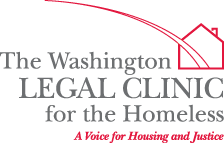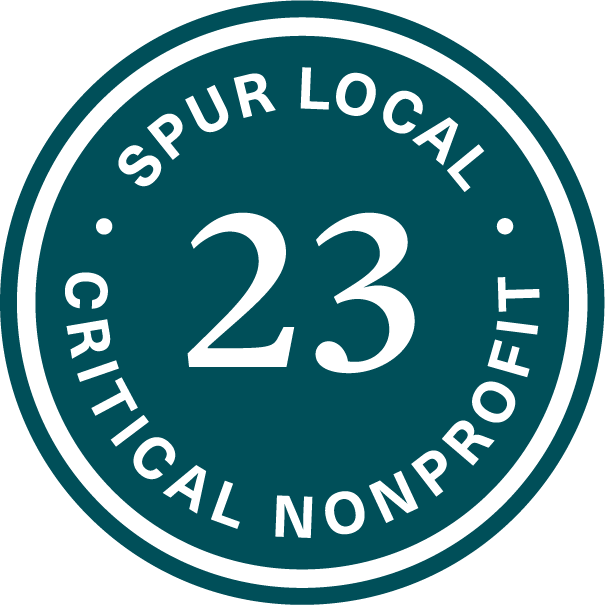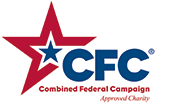We strongly believe that the budget is DC’s most critical and compelling statement of its priorities. We are also intrigued by studies showing that a perception of economic scarcity “produce[s] racial bias in the distribution of economic resources.” This Council certainly expresses economic scarcity throughout the budget process, but that bias can be interrupted and resources can be more equitably distributed to Black and brown residents.
It is always hard for advocates whose expertise lies in housing or human services to really know whether there are inefficiencies in other areas of the budget. We are constantly asked to look for those inefficiencies, constantly asked to prove the effectiveness of every dollar spent on the lowest income residents of DC. At the same time, we are told by this Council repeatedly that they have found every dollar they could for affordable housing or, sometimes, that we must further restrict eligibility in emergency shelter because of our scarce resources. Having spent just a little time doing a deep dive into a few programs outside of housing, we cry foul.
We support the Mayor’s proposed commercial property and commercial deed tax increases. But those resources are not enough. We also support increasing revenue and diverting current funding/enhancements to fund programs that will ensure that DC residents who are struggling the most have a safe place to call home. We have signed onto a letter that lays out our values and lists some options for funding. Here we would like to focus on three options.
Workforce housing: $20M one-time
The $20M in one-time funds devoted to the Mayor’s new initiative to create “workforce housing” for District housing making between 60-120% of Area Median Income (AMI) should instead be devoted to public housing repairs and/or eviction prevention. The majority of the District’s workforce would be left out of this program entirely, as the majority of our workforce makes below 50% of AMI. Calling this fund a “workforce housing” fund demonstrates either an ignorance of the true demographics of DC’s workforce or a belief that teachers, police officers, and others making up to $140K are somehow more critical to our workforce than the thousands of low-wage workers who keep this city running. Because the District’s racial income inequality gap leaves most Black households out of this income range, this fund will also almost exclusively serve non-Black households. Finally, very few households in this income range are severely rent burdened particularly as compared to households at below 50% of AMI or those below 30% AMI. This money would be far better, and far more equitably, spent on repairing public housing units or preventing evictions—both of these programs only serve very low income residents, the majority of whom are Black.
Events DC: $65M recurring, up to $206M one-time
Until this year, Events DC was under the Finance and Revenue Committee. Now it has moved to the Committee of the Whole. As many of you probably know, Events DC is responsible for the District’s sports arena, stadiums, conventions, festivals, etc. It is funded partially by a dedicated revenue stream from a portion of DC’s hotel and restaurant taxes.
We’ve taken a look at the last 7 fiscal years, and here is what we have learned:
- In FY12, Events DC received $101M in dedicated revenue, but only spent $70.6M. $30.4M was swept into an “investment” account. That year 45 DC residents died while homeless.
- In FY13, Events DC received $104.1M in dedicated revenue, but only spent $76.1M. $28M was swept into an “investment” account. That year 20 DC residents died while homeless.
- In FY14, Events DC received $105.5M in dedicated revenue, but only spent $68.8M. $36.7M was swept into an “investment” account. That year 53 DC residents died while homeless.
- In FY15, Events DC received $116.4M in dedicated revenue, but only spent $71.4M. $45M was swept into an “investment” account. That year 41 DC residents died while homeless.
- In FY16, Events DC received $123.6M in dedicated revenue, but only spent $70M. $53.6M was swept into an “investment” account. That year 51 DC residents died while homeless.
- In FY17, Events DC received $138.1M in dedicated revenue, but only spent $67.4M. $70.7M was swept into an “investment” account. That year 45 DC residents died while homeless.
- In FY18, Events DC received $135.3M in dedicated revenue, but only spent $71.8M. $63.5M was swept into an “investment” account. That year 54 DC residents died while homeless.
| Fiscal Year | Dedicated revenue | Amount of dedicated revenue used | Underspending | % of Ded $ unspent | Surplus Balance | # Died Homeless |
| 12 | 101M | 70.6M | 30.4M | 30% | 45 | |
| 13 | 104.1M | 76.1M | 28M | 26.9% | 20 | |
| 14 | 105.5M | 68.8M | 36.7M | 34.7% | 53 | |
| 15 | 116.4M | 71.4M | 45M | 38.7% | 41 | |
| 16 | 123.6M | 70M | 53.6M | 43.3% | 51 | |
| 17 | 138.1M | 67.4M | 70.7M | 51.2% | 176.3M | 45 |
| 18 | 135.3M | 71.8M | 63.5M | 46.9% | 206M | 54 |
| 19Q1 | 34.6M | 20.4M | 14.2M | 41% | n/a | n/a |
It is unconscionable, and fiscally irresponsible, for the DC government to let these tax dollars go unspent while District residents are literally dying on the street, living in tents, and becoming sick from the horrible conditions in public housing. Events DC has underspent its budget by up to $70.7M per year, amassing an unobligated surplus over the years of $206M. $206M sits in the bank while we are told that there isn’t enough money for critical repairs to public housing. Instead thousands of DC residents, many of them seniors or children, must risk their health and safety by living in units full of lead, mold, and crumbling infrastructure while the Mayor “studies” the DCHA’s finances for another year. If the Mayor or Council had swept the $30M in underspending in FY12, 1500 households could have received a voucher that year, and thereafter. Instead, because DC Housing Authority determined that there was little to no hope of ever meeting the need, they closed the waitlist 6 years ago.
Every single person who died on the street from 2012-2018, all 309 people, could have been housed with a small fraction of the money that Events DC failed to spend. The Council could be sweeping half of their dedicated revenue ($63M per year) and a good part of their surplus (up to $206M) into housing needs without impacting a single activity of Events DC. The city could still continue to spend undisclosed amounts of local money on things like the sponsorship of a Welsh soccer team, as it did this year, although we’d like that to stop too. However, unless and until the Council redirects this unspent money to increase the housing stability of DC residents, any references to how tight this budget is or how the Council can’t find the funds we need for affordable housing should cease.
Qualified High Technology Company (QHTC) incentive: $40M recurring
Every year the DC government fails to adequately fund affordable housing, shrinking away from mere mention of a right to housing. It enforces time limits in rapid re-housing regardless of ability to afford rent without a subsidy. It continues to whittle away at the right to shelter, forcing families to meet more and more onerous burdens to get emergency shelter. Meanwhile, DC operates a program in the District on the complete opposite end of the spectrum. This program is an entitlement program—no matter how many people apply, all eligible applicants are assured participation. It has no time limits—benefits will be provided as long as the participant likes, regardless of need. The burden is on the government to prove ineligibility, not on the applicant to prove eligibility, a benefit our homeless residents would also appreciate. It requires very little of the applicant in the way of proving District residency, and continues serving the participant even after the participant moves out of the District. In fact, for all eligibility factors, it merely requires “self-certification”— showing implicit trust in the applicant’s truthfulness. There is also no “redetermination of eligibility”—once you’re in, you’re in.
What is this magical low barrier entitlement program? It’s the Qualified High Technology Company incentive. It costs $40 million a year in foregone revenue and, according to a report by the CFO, there is no evidence that it is doing what it was intended to do: incentivize tech companies to do business in DC. According to the DC Fiscal Policy Institute: “The report also found that many of the companies claiming the tax incentives were already engaged in the same business in the same location before they started claiming tax subsidies. This means the incentive gave away millions in tax breaks to companies for activities they likely would have undertaken anyway, without necessarily generating growth. Because the QHTC tax subsidies are not targeted to new businesses or to businesses that are expanding—and because no DC agency has gathered information to assess the program’s effectiveness—the CFO was ‘not able to reasonably identify what new actions were taken due to the incentives’ or ‘what economic benefits are attributable to the incentives.’ The CFO also concluded that the gains in DC’s high-tech sector ‘cannot be attributed to QHTC incentives.’”
Unless and until this Council and this Mayor take a hard look at its double standard for verifying the eligibility of tech companies and stops handing out millions in tax breaks for no demonstrable benefit while also maintaining one of the worst affordable housing crises in the country, we cry foul on any declaration or implication that DC does not have enough resources to end homelessness.
Take action! https://actionnetwork.org/letters/stop-displacement-repair-public-housing-and-end-homelessness?source=direct_link&





